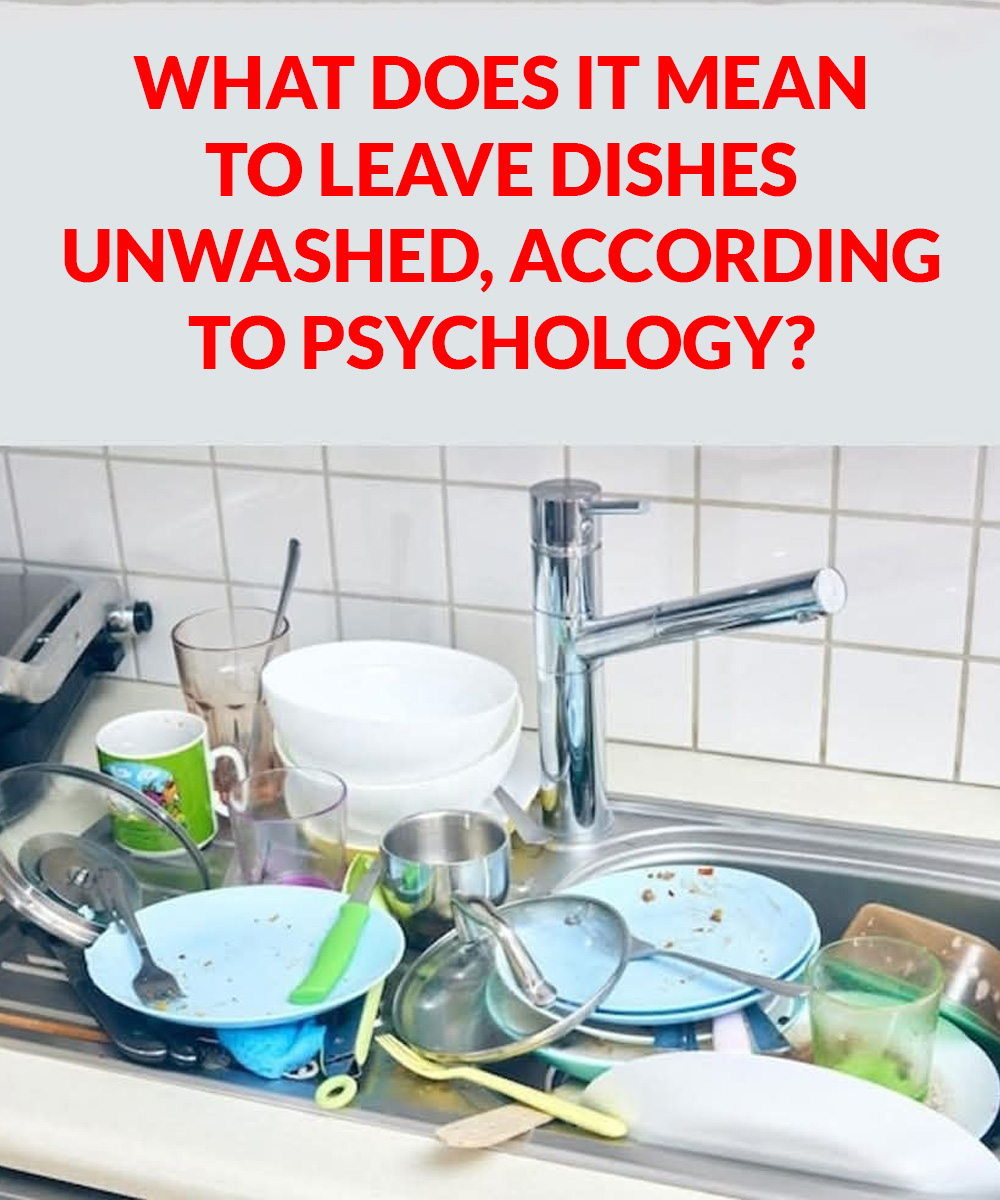The condition of our living spaces often mirrors our mental and emotional well-being. One routine task, such as washing dishes, can reveal much about our psychological state, habits, and overall health. Understanding why some individuals allow dirty dishes to accumulate—and recognizing the potential impacts of this behavior—can provide valuable insights into our daily lives.

Psychological Implications of Accumulating Dirty Dishes
Several psychological factors can contribute to the habit of leaving dishes unwashed:
-
-
Stress and Fatigue
After a taxing day filled with responsibilities, the prospect of tackling household chores like dishwashing can feel overwhelming. This exhaustion can lead individuals to postpone cleaning tasks, allowing dishes to pile up.
-
Procrastination and Disorganization
Procrastination isn’t limited to professional tasks; it often extends into household duties. Viewing dishwashing as a low-priority or bothersome chore can result in its deferral, reflecting a broader tendency to delay tasks in various life areas.
-
Emotional Well-being and Mental Health
A cluttered environment, exemplified by stacks of dirty dishes, can be both a symptom and a contributor to emotional distress. Conditions such as depression or anxiety may cause individuals to neglect household chores, leading to a cycle where the resulting mess further exacerbates feelings of overwhelm and helplessness.
-
@vani_ganapathyWhat causes someone to think leaving dirty dishes in the sink.
-
Absence of Established Routines
Without structured daily habits, maintaining household order becomes challenging. The lack of a consistent routine can make tasks like washing dishes seem more daunting, leading to their accumulation.
Consequences of Allowing Dishes to Pile Up
Letting dirty dishes accumulate can have several adverse effects on both physical and mental health:
-
Health Hazards
Food remnants on unwashed dishes can become breeding grounds for bacteria and attract pests such as ants, cockroaches, and fruit flies. These conditions pose significant health risks and can lead to infestations that are difficult to control.
-
Increased Stress and Anxiety
A cluttered kitchen sink can contribute to visual chaos, which in turn heightens stress and anxiety levels. The sight of piled-up dishes can serve as a constant, guilt-inducing reminder of unfinished tasks, negatively impacting one’s mood and productivity.
-
Strained Interpersonal Relationships
In shared living situations, neglecting communal responsibilities like dishwashing can lead to conflicts among housemates or family members. Consistently leaving dishes unwashed may be perceived as inconsiderate, causing tension and disagreements.
-
Reinforcement of Negative Habits
Allowing dishes to pile up can reinforce procrastination and disorganization, making it harder to establish and maintain productive routines. This behavior can spill over into other areas of life, hindering overall efficiency and well-being.
Strategies to Prevent Dish Accumulation
Implementing practical approaches can help manage and prevent the buildup of dirty dishes:
-
Adopt the Two-Minute Rule
If a task takes less than two minutes to complete, do it immediately. Applying this rule to dishwashing can prevent dishes from piling up and make the chore more manageable.
-
Establish a Consistent Routine
Incorporate dishwashing into your daily schedule, such as cleaning up immediately after meals. Regularity can transform the task into a habit, reducing the likelihood of procrastination.
-
Minimize Dish Usage
Limiting the number of dishes used can naturally reduce the volume that needs washing. For instance, reusing the same cup or plate throughout the day can decrease the overall dish load.
-
Seek Support When Overwhelmed
If feelings of stress or depression are hindering your ability to manage household tasks, consider reaching out to friends, family, or mental health professionals for assistance and guidance.
Conclusion
The practice of leaving dirty dishes unwashed extends beyond mere household upkeep; it reflects deeper psychological patterns and can significantly impact one’s health and relationships. By recognizing the underlying causes and implementing proactive strategies, individuals can cultivate a cleaner living environment, enhance their mental well-being, and foster more harmonious interpersonal connections.





